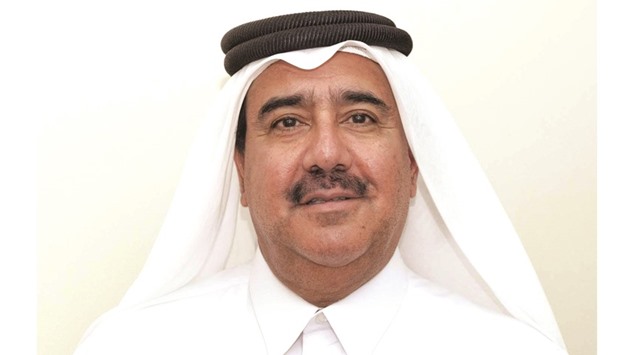The number of patients seeking treatment at the newly-opened thyroid unit at Hamad Medical Corporation increases about 5 to 7% each year.
“About 70% of the patients have thyroid nodules, in particular benign (non-cancerous) nodules,” said Dr Mohamed Salem al-Hassan, head, thyroid unit, Hamad General Hospital.
The unit has contributed greatly to prompt diagnosis and effective treatment for the growing number of patients with thyroid disorders, according to Dr al-Hassan.
“Thyroid nodules can affect both male and female of different ages. A thyroid nodule is an abnormal growth of thyroid cells that forms a lump within the thyroid gland. This lump may appear in the throat or even in the front of the neck. Thyroid nodules are managed by partial or complete surgical removal of the thyroid,” he added.
The thyroid unit is planning to soon introduce a radiotherapy service for the management of thyroid gland disorders. The radiotherapy technique will be used post-operatively for patients with thyroid cancer where there is a large spread of tumours throughout the body, to kill any cancer cells that may remain after surgery.
The thyroid is a butterfly-shaped gland located in the base of the neck, just below the Adam’s apple. The thyroid is responsible for producing hormones that help the body regulate its metabolism. It controls the rate of use of energy sources, protein synthesis, and controls the body’s sensitivity to other hormones, by producing thyroid hormones.
When the thyroid does not work properly, it can cause the body’s system to speed up (hyperthyroidism) or slow down (hypothyroidism). Hyperthyroidism and hypothyroidism are common and are normally treated by medications. Signs and symptoms of hyperthyroidism can include heart palpitations, appetite change, increased sweating, unexplained weight loss, muscle weakness, nervousness and mental disturbances.
Symptoms of hypothyroidism can include fatigue, weakness, muscle cramps and aches, memory loss and weight gain. Untreated thyroid disorders can lead to other health problems such as obesity and diabetes.
Early detection of thyroid disorders is important as early access to treatment can prevent the development of additional health problems.

Dr Mohamed Salem al-Hassan, head, thyroid unit, HGH.
